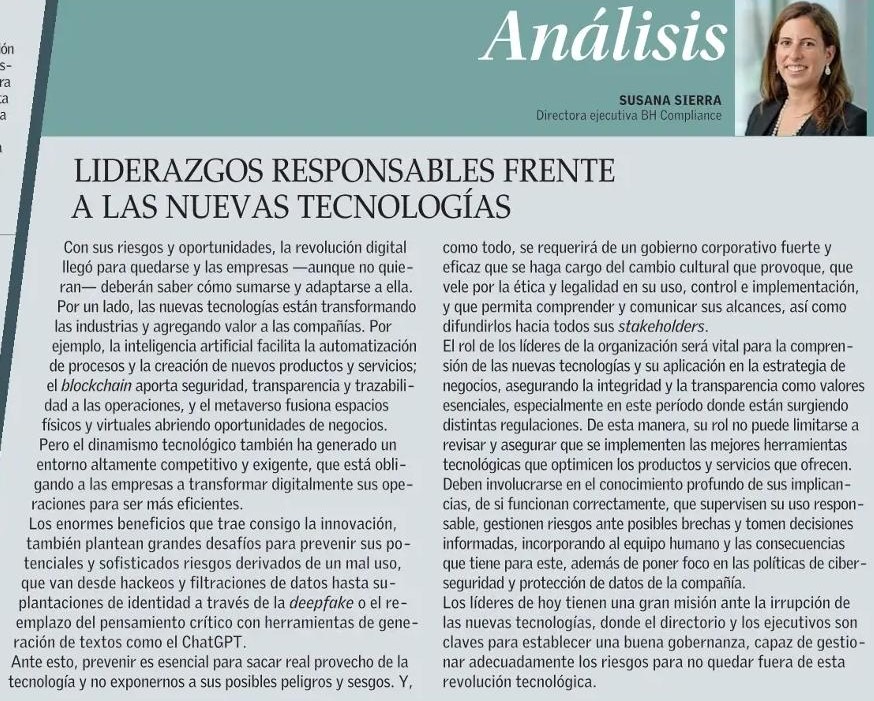
With its risks and opportunities, the digital revolution is here to stay, and companies —even if they don’t want to— have to know how to join and adapt to it.
On one hand, new technologies are transforming industries and adding value to companies. For example, artificial intelligence enables process automation and the creation of new products and services; blockchain provides security, transparency, and traceability in operations; and the metaverse merges physical and virtual spaces, opening up new business opportunities.
However, this technological dynamism has also created a highly competitive and demanding environment, forcing companies to digitally transform their operations to become more efficient.
The enormous benefits of innovation also present major challenges in preventing the sophisticated risks resulting from misuse—from hacking and data breaches to identity theft through deepfakes or the erosion of critical thinking due to text-generating tools like ChatGPT.
In this context, prevention is essential to truly leverage the advantages of technology without exposing organizations to its potential dangers and biases. As with any transformation, a strong and effective corporate governance framework will be necessary — one that addresses the cultural shifts it provokes, ensures ethical and legal use, oversees control and implementation, and facilitates understanding and communication of its scope across all stakeholders.
The role of organizational leaders will be vital in understanding these new technologies and incorporating them into business strategy, while upholding integrity and transparency as core values — especially when new regulations are emerging. Their responsibility goes far beyond approving and overseeing the implementation of the best technological tools to optimize products and services. They must be deeply involved in understanding the broader implications, ensuring these tools function properly, supervising their responsible use, managing risks from potential breaches, and making informed decisions considering the human factor and its consequences. Special attention should also be paid to cybersecurity and data protection policies within the company.
Today’s leaders have a significant mission in the face of technological disruption, where both the board and senior executives are key to establishing sound governance — capable of effectively managing risks and ensuring their organizations are not left behind in this technological revolution.
By Susana Sierra
Published in El Mercurio










